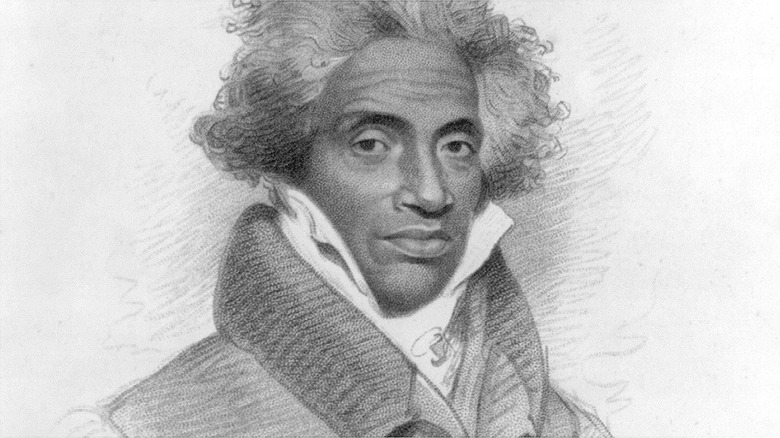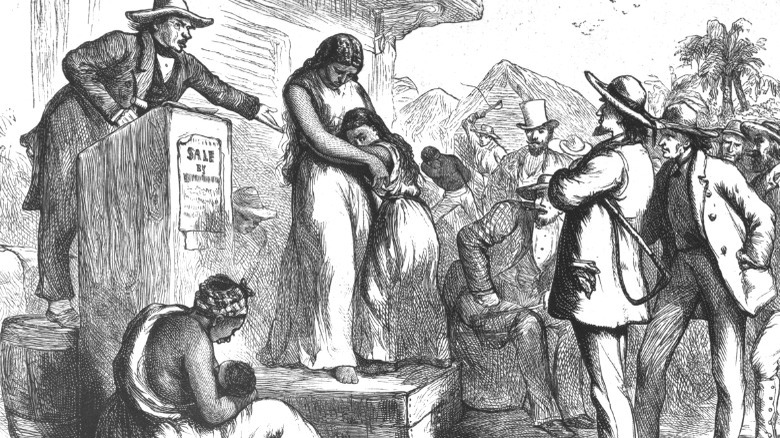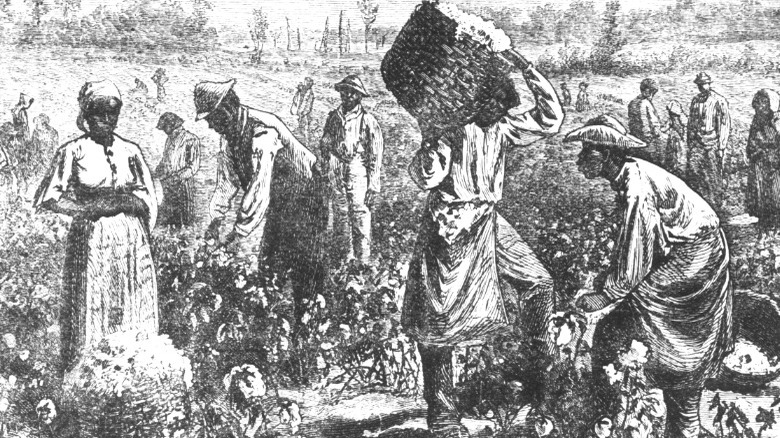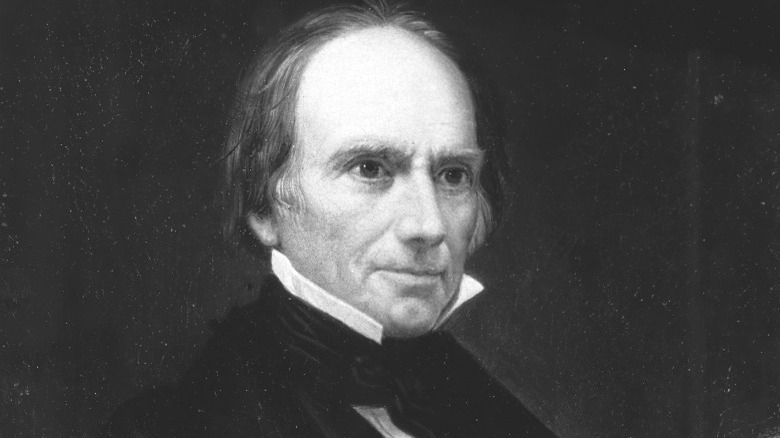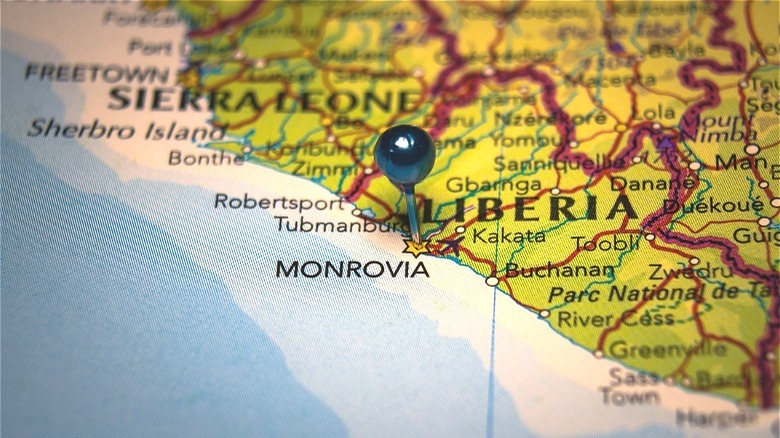How An Enslaved Person Became A Local Celebrity And Earned His Freedom
We've all heard the occasional tales of someone going from rags to riches and from being wealthy to being totally broke. Conversely, it is pretty rare to hear of anyone starting out with everything at their fingertips, having it all taken away, and decades later, regaining a part of their former life. However, this is exactly what happened to one enslaved man in colonial America.
Picture for a minute that you were born to a royal family somewhere in the world. As one with noble blood, you would be afforded wealth, power, and opportunity. Theoretically, you would be set for life and never have to worry about a thing. Then imagine that in a single moment, your wealth, your family, and everything else about who you are is stripped from you. Not only do you lose everything, but you are also then relegated to a brutal life of forced servitude. Though it sounds far-fetched, this is exactly what happened to a man named Abdulrahman Ibrahim Ibn Sori, who went from being an African Prince to an enslaved American (via History).
Taken Captive and Enslaved
Abdulrahman Ibrahim Ibn Sori was a prince of the Kingdom of Fouta Djallon, which today is known as Guinea in West Africa. Sori was educated in politics and the religion of Islam in Timbuktu and spoke five different languages by the time he was taken captive, according to History. His kingdom was going through a time of intellectual growth, and its society even had a constitution.
Unfortunately for Sori, it didn't matter how accomplished or intelligent he was, nor did it matter that he was literal royalty. After being taken captive by enemy forces in his homeland, Sori was then sold to traders when the global trade of enslaved people was at its height. As a result of this, he was one of an estimated 12.5 million Africans who were sent to the New World as enslaved people over three centuries (per History). After Sori was forced to leave his home, he never saw his kingdom again.
An enslaved person in the New World
Abdulrahman Ibrahim Ibn Sori was shipped across the Atlantic Ocean and subsequently arrived in Natchez, Mississippi (per History).This is where he met the man who would control his life for the next four decades: Thomas Foster. According to Natchez, Foster was a dirt farmer from the area who purchased two enslaved people recently transported from Africa. One of those was Sori.
Sori made a desperate plea to Foster, attempting to convince him of his true identity as a West African prince. Of course, that did not go over well and ultimately resulted in him being made fun of for his claims. During his enslavement, he was mockingly referred to as "Prince" as his owner did not believe him. Sori was subsequently transported to Foster's homestead, which was drastically different from his homeland. Once there, Foster shaved Sori 's head and immediately forced him to work his land. Shortly after, Sori fled Foster's home and remained on the run for weeks before ultimately returning.
A Blast From The Past Changed Everything
When he came back to his owner, Abdulrahman Ibrahim Ibn Sori had a different mindset. According to Mulsim scholar Zaid Shakir Imam (via History), during his escape, Sori realized that he was "no longer a prince and no longer a warrior." Despite that revelation, he decided he wouldn't be a victim of his circumstances and began doing everything he could to make himself indispensable to Thomas Foster. His knowledge of how to cultivate cotton became his biggest asset, and he used it to help Foster become one of the biggest cotton producers in the area.
Sori's influence grew along with the success of Foster's plantation, and because of this, he was granted more "freedoms" than most enslaved people. He married and had nine children, along with the ability to grow some of his own crops to sell. One day, in 1807, while he was selling his vegetables at a local market, someone from his past recognized him as a prince of Fouta Djallon. The man who recognized him was a surgeon named John Cox, who, a decade earlier, had been shipwrecked near the coast of Sori's kingdom. According to History, Cox was then rescued and taken to the capital city of Timbo. The royal family helped him recover, and he never forgot their kindness. When Cox crossed paths with Sori that fateful day years later, he saw an opportunity to repay his friend by returning his freedom to him.
Fight For Freedom
Though his intentions were noble, procuring Abdulrahman Ibrahim Ibn Sori's freedom was not going to be easy. According to New Africa Center, John Cox attempted to buy Sori from Thomas Foster in order to allow him to go back to Africa. Unfortunately, by this point, Sori was now what he had set out to be — an essential part of Foster's cotton operation. This meant Foster was not going to agree to sell him under any circumstances. To his credit, Cox continued to try to secure Sori's freedom for the rest of his life, but he was ultimately unsuccessful.
Despite Cox's failure to free his friend, Sori did gain something as a result of his efforts. The astounding story of this random marketplace meeting spread and made it into a local newspaper (per History). As this information about Sori's incredible story began to spread, he became somewhat of a local celebrity. His newfound fame opened up doors to government officials in Morocco and eventually in the United States as well. On February 22, 1828, Secretary of State Henry Clay negotiated with Foster for Sori's release (via History). Foster agreed, but only after ensuring that he would be compensated and that Sori would be transported back to Africa so that he would never experience true freedom in America.
The Journey Home
After 40 years, Abdulrahman Ibrahim Ibn Sori was technically free. Unfortunately, his newfound freedom did not extend to his wife and children. As much as he wanted to return to his kingdom, he refused to do so without his family (per History). He was set to sail from Washington D.C. back to Africa, and as he prepared to travel there, his celebrity grew even more. Sori used this opportunity to fundraise money to buy his family's freedom. Ultimately, he was able to free his wife, but not his children.
Despite not having his kids with him, Sori and his wife sailed back to Africa, arriving in Monrovia, Liberia, in March 1829 (per History). He and his wife were hopeful that they would eventually be able to have their children follow them, but fate was not that kind. Weakened by the trip across the Atlantic, Sori contracted a fever within four months of arriving in Liberia. He eventually succumbed to this fever and passed away at the age of 67 (per New Africa Center). Sadly, he never reunited his children or his kingdom of Fouta Djallon before he died.
